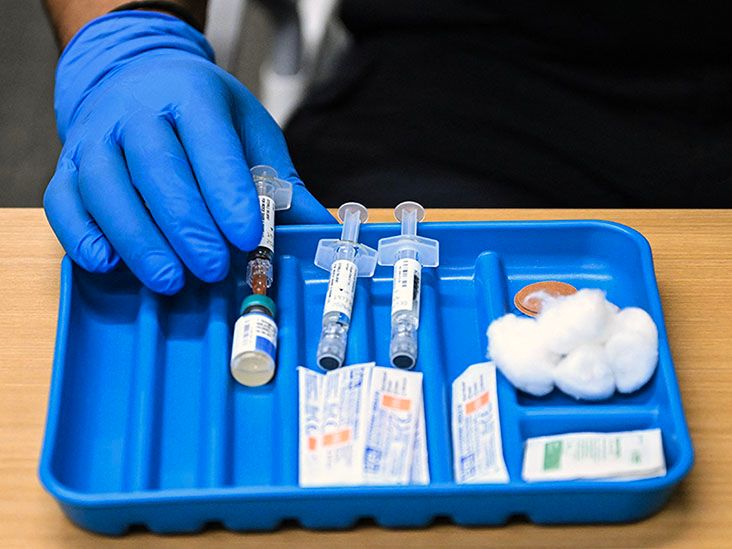Candida may be linked to endometriosis. This may be because it alters the balance of microorganisms in the body and can cause inflammation. Further research is necessary to fully understand the potential relationship.
Endometriosis is a condition that causes tissue similar to the lining of the uterus, the endometrium, to grow outside of the uterus.
Candida is a yeast that naturally occurs in the body and only causes problems if it overgrows, which can lead to fungal infections.
This article looks at the potential link between Candida and endometriosis, what the research says, and tips for preventing Candida overgrowth.

Candida
The gut microbiota is the term for the collection of microorganisms, such as bacteria, which live in the gastrointestinal (GI) tract.
Vaginal yeast infections happen
Endometriosis is a chronic inflammatory condition, and Candida
Learn about home remedies for endometriosis.
Endometriosis is a chronic inflammatory disease. According to a
The microbiome refers to the collection of microorganisms, such as bacteria and fungi, which live on and inside the body.
According to a
Candida may link to certain inflammatory processes, as Candida albicans infection may trigger certain inflammatory responses within the body.
High levels of estrogen in the body may be an overlapping feature between endometriosis and increased levels of Candida.
According to a
Factors which increase levels of estrogen in the body may increase the risk of VVC, such as:
- pregnancy
- oral contraceptives containing high estrogen levels
- hormone replacement therapy
This suggests that estrogen may promote Candida albicans’ negative effects. Estrogen may allow Candida albicans to avoid the defenses of the immune system, which would normally fight off infection. This means that high estrogen levels may allow Candida albicans to multiply and lead to infection.
High estrogen levels are also a
Learn about home remedies to help balance hormone levels.
An overgrowth of Candida in the vagina may cause VVC, and cause symptoms including:
- itching
- irritation and discomfort
- burning sensation
- abnormal vaginal discharge
- painful sex
- pain or discomfort when urinating
A 2022 study found that disease-causing vaginal bacteria was higher in people with endometriosis, compared to those without endometriosis. This suggests there may be a link between the vaginal microbiota and endometriosis.
The researchers found that the presence of disease-causing microorganisms, including Escherichia coli and Candida, was higher in people with endometriosis compared to the control group.
According to a
The case study was of a 33-year-old female with endometriosis. Researchers found Candida albicans and Candida glabrata, which are two species of Candida, present in the person’s GI tract.
Tests also found high levels of other microorganisms in the GI tract, some of which were harmless, while others may contribute to disease. These findings suggested significant disruption to the person’s gut microbiota.
The report concluded that people with endometriosis have changes to their gut microbiota, which are not present in people without endometriosis.
This suggests there is a link between the gut microbiota and endometriosis. The presence of Candida may be one of the changes to the gut microbiota seen with endometriosis.
Researchers require further, large-scale studies to fully understand how endometriosis and the gut microbiota link. Experts hope additional research will help to improve diagnostic tools and treatments.
Analyzing the gut microbiota, along with clinical and imaging tests,
Treating imbalances in the gut microbiota may also be an additional treatment for endometriosis, alongside surgery, and may help improve symptoms and quality of life.
The following tips
- Use antibiotics or corticosteroids exactly as a doctor prescribes.
- Wear breathable, cotton underwear to help prevent vaginal yeast infections.
- Practice good oral hygiene to help prevent Candida overgrowth in the mouth, throat, and esophagus.
- Take any antifungal medications as a doctor prescribes if at risk of invasive candidiasis, such as being hospitalized.
Can hormonal imbalance cause Candida?
Estrogen
What bacteria is associated with endometriosis?
Infection with the Fusobacterium bacteria in the endometrium
Species of Fusobacterium commonly occur in the oral and gut microbiota, but it can infect the uterus. Researchers have found 64% of people with endometriosis test positive for Fusobacterium in the endometrium.
What autoimmune disease causes Candida overgrowth?
Autoimmune polyendocrinopathy-candidiasis-ectodermal dystrophy (APECED) is an autoimmune disease that causes persistent Candida infections.
Candida may link to endometriosis, due to how the fungus may cause changes to the body’s microbiome. Research suggests changes to the gut and vaginal microbiota may link to the development of endometriosis.
Further, large-scale studies will help researchers better understand the link and may help improve screening, diagnosis, and treatment strategies for endometriosis.


